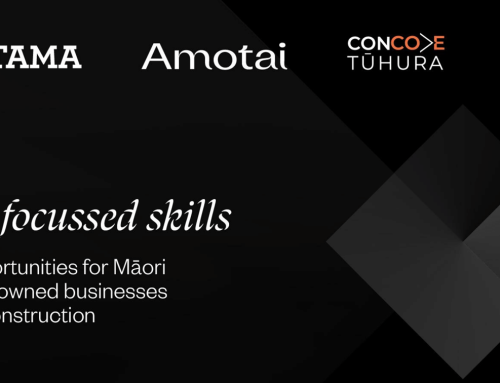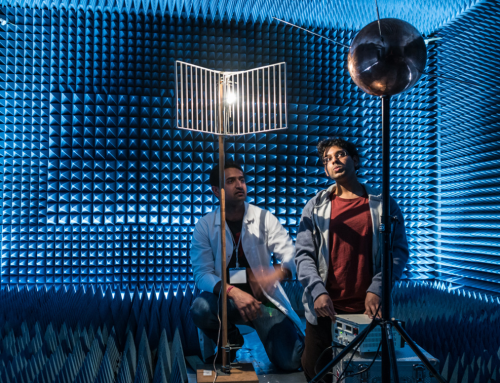AGMARDT – short for The Agricultural and Marketing Research and Development Trust – has a unique place in the food and fibres innovation ecosystem as an independent non-profit organisation that has been investing in agribusinesses for more than 30 years.
AGMARDT has supported several Poutama initiatives, including the Indigenous NZ Cuisine Cluster (INZCC). Along with NZTE, AGMARDT funding supported INZCC to base a person in Hong Kong to assist with market development and entry into Hong Kong, China, Japan and Taiwan.
AGMARDT’s new general manager, global marketer Lee-Ann Marsh who took on the role in August following four years with Beef + Lamb NZ (B+LNZ), says Māori agribusinesses are a core focus for AGMARDT.

AGMARDT GM – Lee-Ann Marsh
“Māori agribusinesses constitute a significant part of our food and fibres sector across pastoral primary, natural products and related agri-food business sectors.
As an organisation that’s focused on shaping a better future and taking a long-term view, AGMARDT seeks to partner with those who have a shared vision for accelerating positive change.
We want to extend our reach to Māori agribusinesses, as well as other groups who are passionate about people and the planet and who are looking for ways to solve some of the big problems we face today in terms of climate, health and nutrition.
We recognise and respect kaitiakitanga and the intergenerational relationship that Māori have with te taiao,” she says.
“These elements also resonate strongly with communities in Aotearoa and the conscious consumer that is an increasing part of our global market,” says Lee-Ann who brings an expert consumer lens to the role backed by an international career working with blue chip clients across fast-moving consumer packaged goods, healthcare and technology.
Moving to New Zealand at the end of 2010, she also worked for Fonterra and Nestlé prior to joining B+LNZ as global market innovation manager in 2017.
“There is huge market potential for this unique cultural provenance and value-add of Māori agribusiness.”
As a ‘future shaper’, targeting its investments into research, innovation and capability in the food and fibres sector, AGMARDT supports collaborative initiatives that contribute to a unified and aligned industry and a healthy Aotearoa New Zealand food and fibres innovation ecosystem.
“Given the challenges and opportunities facing our world, it’s important that our food and fibres sector is unified and aligned in our pathway to a sustainable future. We need to see greater industry collaboration and partnership across research and innovation to ensure the whole sector benefits.”
Former Poutama CEO Richard Jones says AGMARDT is innovative in how it applies its funding and is a great connector, opening doors for Māori agribusinesses into the mainstream and wider sector.
“Without AGMARDT’s support we wouldn’t have been able to base someone in Hong Kong. AGMARDT’s support also helped with our thinking around sector collaboration. The key thing is that it meant we were able to bring different businesses together to collaborate, with cross-collaboration such as with our hemp roopu, MiHI (Movers in Hemp Innovation) and sector collaboration as has happened with the Māori Winemakers Collective TUKU and Waiū Dairy.”
Lee-Ann says AGMARDT holds a unique place in the innovation ecosystem as a partner that can work at the ‘edges’, investing before most other funders, in initiatives that will accelerate change and benefit Aotearoa New Zealand.
“Our aim is to support groups to test ideas so they can access wider investment from the likes of the Ministry of Primary Industries and Callaghan Innovation, but also the private sector. As such we are not averse to risk and are very often the first funder off the rank to support the development of early transformative ideas”.
“That’s where we see a real opportunity with Māori food and fibres enterprises, not only supporting innovation, but our offerings across leadership capability, helping businesses understand customers, facilitating international speakers at conferences and forums and providing short term capital to accelerate business growth.”
Other Māori agribusiness initiatives AGMARDT has partnered with include a project through Parininihi ki Waitotara (PKW) to investigate the potential of farming New Zealand native water lentils in Taranaki as a source of sustainably grown protein and providing additional economic opportunity and employment for the local Taranaki Māori community. Literature reviews and field sampling have been completed so far and laboratory work and pilot projects are underway.
AGMARDT was also a sponsor of the Te Hono Māori Future & Tech Summit held in Taranaki in May this year. With the theme of “What’s the Game Plan” the summit brought together more than 170 Māori and business leaders, including 50 taiohi (young people) from Taranaki and Whanganui, to discuss examples of Māori in business who are integrating productivity, climate change, new knowledge/tech and business models to build resilience post Covid-19. View three young Māori students talking at the summit about a project they were involved in here.
“AGMARDT was fantastic as a sponsor and a partner,” says Te Hono board member, Wayne Mulligan. “They enabled us to expose young Māori who’ve just finished their degrees to new technologies and the career pathways out there in the future of food and fibres in Aotearoa New Zealand.”
Alongside its full range of grants and scholarships, AGMARDT also runs the Food and Fibres Challenge Aotearoa New Zealand, an initiative run several times a year seeking applications from industry groups with leading edge initiatives addressing specific priority areas.
“We’re really keen to connect and hear from more Māori agribusinesses, so please do get in touch if you want to find out more.”
Feel free to contact Lee-Ann directly (on +64 27 837 4297) and find out about AGMARDT’s funding programmes here.






